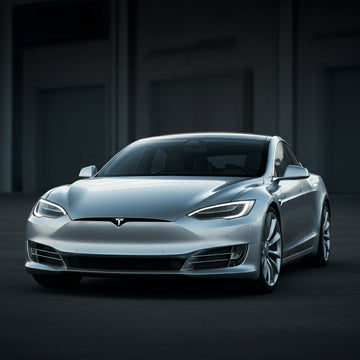Tesla Aims to Enhance LFP Battery Performance for U.S. Production
Tesla, the electric vehicle (EV) pioneer, is making significant strides in the production of lithium iron phosphate (LFP) batteries, with a focus on improving their performance and increasing manufacturing capabilities in the United States. As the demand for electric vehicles continues to rise, Tesla's advancements in battery technology are crucial for maintaining its competitive edge in the rapidly evolving automotive landscape.
Understanding LFP Batteries
LFP batteries, known for their thermal stability and safety, have become increasingly popular in the EV market. Unlike nickel-cobalt-aluminum (NCA) and nickel-manganese-cobalt (NMC) batteries, which are typically used in higher-end models, LFP batteries are more cost-effective and environmentally friendly. Their ability to withstand higher temperatures makes them less prone to thermal runaway, a phenomenon that can lead to battery fires.
Recent Innovations by Tesla
According to reports, Tesla is working on a new formulation of its LFP batteries to enhance their energy density and overall performance. This innovation aims to address some of the limitations historically associated with LFP technology, particularly its lower energy density compared to other lithium-ion batteries. By improving energy density, Tesla hopes to increase the range of its vehicles powered by LFP batteries, making them more appealing to consumers.
“We are committed to advancing our battery technology to ensure that our vehicles not only meet but exceed customer expectations,” said Tesla’s Chief Technology Officer, Drew Baglino. “Enhancing LFP battery performance is a key part of our strategy as we scale production in the U.S.”
Production Shift to the U.S.
Currently, Tesla sources its LFP batteries primarily from suppliers in China. However, the company is planning to shift some production to the United States, which aligns with its broader strategy to localize supply chains and reduce dependency on overseas manufacturing. This move is expected to not only enhance production efficiency but also mitigate risks associated with global supply chain disruptions.
Impact on the Electric Vehicle Market
As Tesla enhances its LFP battery technology and begins U.S. production, the implications for the EV market are significant. More affordable and safer battery options could lead to a surge in EV adoption, particularly among budget-conscious consumers. Furthermore, as competition in the EV space intensifies, other manufacturers may also look to improve their battery technologies, potentially driving overall advancements in the industry.
Key Takeaways
- Tesla is enhancing its LFP battery performance to increase energy density.
- The company plans to bring LFP battery production to the U.S. to localize supply chains.
- Improved LFP batteries could lead to greater EV adoption and impact the automotive market significantly.
Conclusion
As Tesla continues to innovate in the field of battery technology, the company's efforts to improve LFP batteries and shift production to the U.S. could play a pivotal role in shaping the future of electric vehicles. With a focus on safety, performance, and sustainability, Tesla is not just leading the charge in EV production but also setting new standards for battery technology in the industry.










